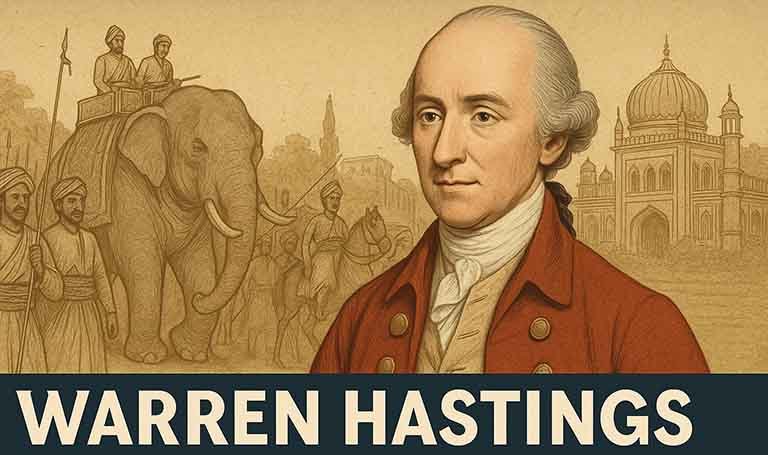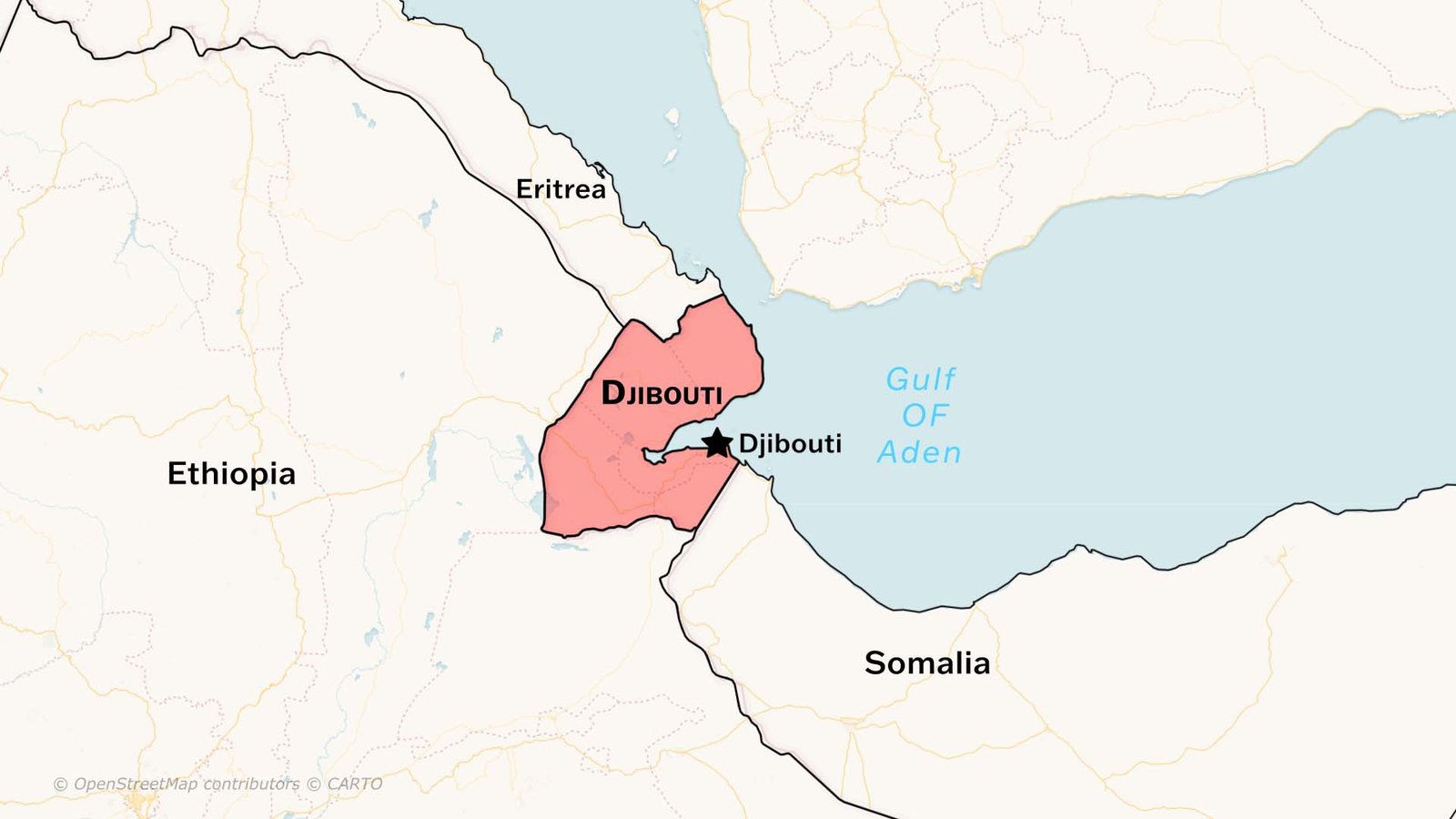A guy (Warren Hastings) joins the English East India Company as a clerk, rises through promotions to become the supreme leader of all of India, introduces a modern Indian judicial system, tries to eradicate corruption, abolishes the Dastak provision, attempts to introduce a new land revenue system, brings Indian states to their knees, and loots them so much that he faces an impeachment trial in the British Parliament.
Even Macaulay, who didn’t have a high opinion of Indians to begin with, wrote about this Governor-General, saying this guy didn’t understand the language of justice, humanity, or treaty agreements, nor did he give them much importance. For him, there was only one rule: “Might is right.” In other words, whoever holds the stick owns the buffalo.
Phillip Francis, a British parliamentarian of that era, went so far as to say that this man, the Governor-General of Bengal, turned a wealthy and developed state into a barren wasteland of beggars through his policies.
We’re talking about Warren Hastings.
The Rise of Hastings
Francis believed that under Hastings, the entire administration of the East India Company had become corrupt. But the relationship between Francis and Hastings was never great to begin with. By 1780, their relationship had become so toxic that they once got into a physical fight, and during a duel, Francis was injured by a pistol shot.
From the Company’s perspective, this was a time when enemies surrounded them. People in Bengal were dying of famine, Company officers were indulging in rampant corruption, misusing the Dastak provision, and at the helm of it all was Warren Hastings. Despite all this, the Company could have easily gone under, but this man not only saved the Company from sinking but also steered it to success.
So, what happened that made bigwigs and imperialists like Francis and Macaulay feel compelled to criticize Hastings so harshly?
Warren Hastings was born in 1732. In 1750, he joined the English East India Company as a clerk. Through his personality and talent, he climbed the ranks and, by 1772, became the Governor of Bengal. After the Regulating Act, he was appointed the first Governor-General of the Company’s Indian territories.
In 1772, Warren Hastings became the Governor of Bengal and passed several administrative, revenue, judicial, and commercial reforms, which we’ll look at one by one.
Administrative Reforms
In 1772, Warren Hastings abolished the Dual Government system and brought Bengal entirely under Company control.
The Nawab’s pension was slashed from 32 lakh to 16 lakh—cut in half. Moreover, the annual sum of 26 lakh sent to the Mughal Emperor under the Treaty of Allahabad was stopped by Hastings. His reasoning? The Mughal Emperor had come under Maratha suzerainty, so this decision was necessary. But the truth was different. Warren Hastings was an outright expansionist. His primary motive was to increase the Company’s profits, expand its territories, and fill his own pockets. To achieve this, he took several steps during his rule, one of which was land revenue.
Land Revenue Policy
Hastings used a trial-and-error method for land revenue. Based on the Ijarah system, he introduced Revenue Farming in Bengal, where the highest bidder was given the right to collect land revenue. However, once they got the collection rights, the collectors heavily exploited farmers. To address this, Hastings reduced the five-year agreement to one year, but this reform also failed because the land wasn’t properly surveyed, and collectors demanded maximum revenue regardless of the land’s productivity. This pushed a prosperous state into famine and poverty.
Hastings also attempted to bring changes to the judicial system, and these efforts were largely successful. Let’s see how.
After the Battle of Buxar, the Company gained revenue collection rights for Bengal, Bihar, and Orissa.
By 1772, the Company’s rule had spread to Bengal, Bihar, Orissa, Bombay, and Madras.
Judicial Reform
As the Company’s responsibilities grew, it realised the need to centralise administration.
As a result, the Company established a new justice system. Each district would have two types of courts:
- Criminal Court (Faujdari Adalat) resolves criminal cases.
- Civil Court (Diwani Adalat) is to resolve civil cases.
In civil cases, Indian laws would be interpreted by Maulvis and Pandits, and the European District Collector would preside over the civil court. Criminal courts would be presided over by Qazis and Muftis, but the European District Collector would oversee them.
The Collector’s office became the new center of power. Zamindars were stripped of their judicial powers. The Collector’s job was to collect taxes in their district and maintain law and order. Darogas, police officers, and judges assisted the Collector in these tasks. Traces of this system can still be found in modern administration.
Under the Regulating Act of 1773, a Supreme Court was established in Calcutta. Later, Hastings also attempted to codify Hindu and Muslim laws.
Commerical Reforms
In terms of commercial reforms, Hastings tried to remove bottlenecks in internal trade.
He reduced the number of custom houses and lowered customs duty to 2.5%, applicable equally to Indians and Europeans.
In 1775, Hastings abolished the Dastak provision, a highly controversial trade permit given to the Company by the Mughal Emperor in 1717, which Company officials mostly misused for private trade and as a medium for corruption. Hastings finally abolished it.
These were Hastings’ administrative, revenue, judicial, and commercial reforms.
Now let’s discuss the Nandkumar Episode, considered the first judicial murder in Indian history.
Nandkumar Episode
In 1775, Nand Kumar, a former revenue collector for the Bengal Nawab, filed charges of corruption and nepotism against Warren Hastings, raising questions about his position as Governor-General.
Hastings’ ego was bruised. He retaliated by filing a forgery case against Nand Kumar. Hastings began a game of power play and manipulation. The Chief Justice of the Supreme Court, Elijah Impey, was a close ally of Hastings. Through judicial manipulation and conspiracy, Hastings got Nand Kumar declared guilty in the forgery case. Shockingly, for a minor crime like forgery, Nand Kumar was sentenced to death—a punishment no Indian law of the time prescribed for such an offense. Hastings handled the situation in an arbitrary and despotic manner, misusing his powers. This incident is regarded as the first judicial murder in Indian history.
Now let’s discuss Warren Hastings’ foreign policy.
Foreign Policy of Warren Hastings
If we sum up Hastings’ foreign policy in one line, it would be this: He wanted to expand the Company’s territories in India by any means necessary. To occupy more areas, wars were needed; wars required money, and to get money, he was willing to stoop to any level. That was Warren Hastings’ policy.
During his tenure, he fought the Rohila War in the north of Oudh. From 1775 to 1782, the Company fought the First Anglo-Maratha War, aiming to make Raghunathrao a puppet ruler, just as they had done with Mir Jaffer to win the Battles of Plassey and Buxar and seize Bengal.
Similarly, in the south, the Second Anglo-Mysore War took place.
Wars are expensive, and whenever Hastings needed money, he would go to the Bengal Nawab or nearby rulers to demand funds. He’d say, “We have a treaty with you, but we hold the stick, so the buffalo is ours.” As we saw earlier, he halved the Bengal Nawab’s pension because he needed money for wars. He stopped the annual tribute to the Delhi Emperor.
Chait Singh Controversy
There was a ruler in Benares named Chait Singh, whose story is interesting and later became a ground for Hastings’ impeachment. Whenever Hastings needed money, he demanded it from Chait Singh. Initially, Chait Singh complied, but as Hastings frequently demanded bribes due to ongoing wars, the ruler politely refused. Hastings then imposed fabricated charges on the ruler and fined him. The Raja literally fell at Hastings’ feet, placing his turban on Hastings’ head, but Hastings didn’t relent.
Similarly, Hastings demanded a share of the savings of the Begum of Oudh.
Impeachment of Warren Hastings
Later, these three episodes—Chait Singh, the Begum of Oudh, and Nand Kumar—became grounds for Hastings’ impeachment. Edmund Burke initiated the impeachment process against Hastings in the British Parliament, with charges of bribery, corruption, and immoral practices that went against the English conscience.
The British Parliament concluded that while Hastings’ policies were harsh, despotic, and arbitrary, they were in the interest of the British nation. As a result, Hastings was honorably acquitted and even offered a package of 4,000 pounds per annum.
On a positive note, Warren Hastings also protected Indian literature and knowledge. He could speak Bengali and had knowledge of Arabic and Persian. In 1778, William Jones established the Asiatic Society of Bengal with Hastings’ support, aimed at studying and researching Indian knowledge, history, rich heritage, and literature.
Conclusion Warren Hastings
To conclude, Warren Hastings did everything to ensure the Company’s economic and political power faced no threats. He protected the Company’s resources, even if it meant reducing Indian states to begging. Despite famines, droughts, enemies all around, and corrupt subordinates, Hastings stood firm, as historian A.M. Davis wrote.
He introduced several judicial, revenue, and commercial reforms that acted as a strong foundation for future Governor-Generals, enabling them to build the Company’s grand empire.
This is the story of Warren Hastings—how he joined the English East India Company as a clerk, rose to become Governor-General, introduced a new revenue policy, brought judicial reforms, tried to curb corruption by abolishing Dastak, and implemented commercial reforms by regulating customs duty. He looted Indian states—or forced them to beg, depending on how you see it—it-invested the money in wars, defeated those same states, and expanded the Company’s territory. With the help of his Chief Justice friend, he secured favorable judgments and even escaped the British Parliament’s impeachment process.
Read more: Israel-Palestine Conflict
Read more: The Advent of Europeans in India







